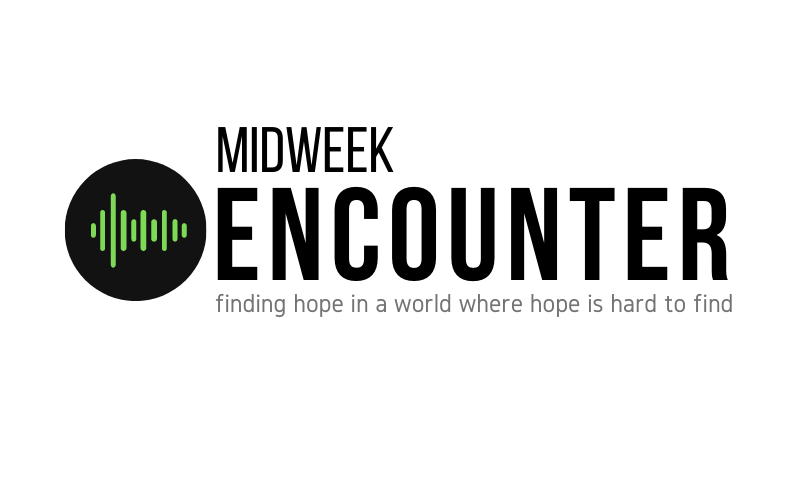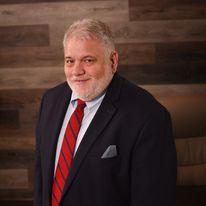



(This message was preached mostly without notes using the scripture and telling the story of Acts 16)
Comment on video:
He was the founder of the Salvation Army. In its day the Salvation Army was a vibrant street ministry that touched the lives of the needy directly. Booth was radical in his faith and until his dying day could not understand how the church could remain on the sidelines of life. Much of the church was unengaged with the culture. They were busy with their own lives and had no time for those around them. He could never understand how you could be a Christ follower and not feel the call of God in your life to touch those around you with the gospel of Jesus Christ.
"I don't feel called..."Ever heard that? Ever said that? A great comeback from one of the greatest men the world has ever known:
'Not called!' did you say? 'Not heard the call,' I think you should say. Put your ear down to the Bible, and hear him bid you go and pull sinners out of the fire of sin. Put your ear down to the burdened, agonized heart of humanity, and listen to its pitiful wail for help. Go stand by the gates of hell, and hear the damned entreat you to go to their father's house and bid their brothers and sisters, and servants and masters not to come there. And then look Christ in the face, whose mercy you have professed to obey, and tell him whether you will join heart and soul and body and circumstances in the march to publish his mercy to the world.
“When you meet a man or woman who puts Jesus Christ first, knit that one to your soul.” Citation: Oswald Chambers, So I Send You/Workmen of God (Discovery House, 1993), p. 35
Next Sunday is Vision Sunday. After four years of standing on this platform and three years of living in this community, I know for the first time what it is that God is calling us to do. It has not come easy or without cost. In desperation to know for sure, knowing that which ever way it went it was not going to be easy, I have tried to listen intently to the heart of God. I have tried to focus on which way He is going because that is the way I want to go.
There are lots of voices today that call to pastors. “Do it this way,” “buy this system or purchase my latest book and you can have a church like mine.” A high percentage of those voices have one common theme. Bigger is better.
This message today is laying down a biblical foundation for what you are going to hear next week. Some of you will love what you hear and embrace it, no doubt there will be those of you who will consider strongly if this is the place for you. That’s okay.
I have vivid memories as a kid of my father taking me to an auction sale, telling me, "Don't scratch your nose at the wrong time, son." He said to me, "Always remember this: whenever you go to an auction sale, make sure you know your upper limit price."
That is ingrained in me. The great danger for us is that we walk into the Christian life knowing clearly our upper limit price. Jesus does not allow us to set that. "If you save your life, you will lose it; but if you lose your life for my sake and the gospel's, you will keep it," said Jesus [Mark 8:35].
Our calling is to a life of unconditional obedience where the price is unknown. Citation: Colin Smith, pastor of Arlington Heights Evangelical Free Church, Arlington Heights, Illinois; source: Preaching Today #204 Acts 16 has been used as a scripture to be used in missionary services around the world. It is a shame to relegate it to only that use.
I want to tell you this story.
1. God has given all of us a mission to accomplish.
“Paul and his companions traveled throughout the region of Phrygia and Galatia having been kept by the Holy Spirit from preaching the word in the province of Asia. When they came to the border of Mysia, they tried to enter Bithynia, but the Spirit of Jesus would not allow them to.” Act 16: 6-7
6They went to Phrygia, and then on through the region of Galatia. Their plan was to turn west into Asia province, but the Holy Spirit blocked that route. 7So they went to Mysia and tried to go north to Bithynia, but the Spirit of Jesus wouldn't let them go there either. 8Proceeding on through Mysia, they went down to the seaport Troas. The Message
God is passionate about your life and what you do with it. He cares about your use of time and how you use it for others.
There are several choices that we could make as a church. Obviously we have grown numerically. This presents some problems that we have to deal with.
You would think that those traveling on this trip would have been right to minister to those who are lived along this nearly 300 mile stretch.
2. God’s mission always has a target.
“So they passed by Mysia and went down to Troas. During the night Paul had a vision of a man of Macedonia standing and begging him, “Come over to Macedonia and help us.”
That night Paul had a dream: A Macedonian stood on the far shore and called across the sea, "Come over to Macedonia and help us!" The dream gave Paul his map. We went to work at once getting things ready to cross over to Macedonia. All the pieces had come together. We knew now for sure that God had called us to preach the good news to the Europeans.
Illustration: Acts 16: 11-15 “Conversion of Lydia”
God allowed Paul, Silas and those traveling with them to pass by all the other people with needs to reach Lydia and her household.
Do you know that God cares about the people who live right across the street from this church? He cares about the people who live right across the street from you. He is looking for the church to be the church.
Len Sweet in Postmodern Pilgrims recounts a letter a physician wrote to a church-related magazine: Today I visited an eight-year-old girl dying of cancer. Her body was disfigured by her disease and its treatment. She was in almost constant pain. As I entered her room, I was overcome immediately by her suffering--so unjust, unfair, unreasonable. Even more overpowering was the presence of her grandmother lying in bed beside her with her huge body embracing this precious, inhuman suffering.
I stood in awe, for I knew I was on holy ground....The suffering of innocent children is horrifying beyond words. I will never forget the great, gentle arms and body of this grandmother. She never spoke while I was there. She was holding and participating in suffering that she could not relieve, and somehow her silent presence was relieving it. No words could express the magnitude of her love. Leonard Sweet, Postmodern Pilgrims (Broadman & Holman, 2000), p.16; submitted by Merle Mees; Topeka, Kansas
3. God’s mission does not come without challenges.
Illustration: Acts 16: 19-22 When the owners saw that their lucrative little business was suddenly bankrupt, they went after Paul and Silas, roughed them up and dragged them into the market square. Then the police arrested them and pulled them into a court with the accusation, "These men are disturbing the peace--dangerous Jewish agitators subverting our Roman law and order." By this time the crowd had turned into a restless mob out for blood.
The judges went along with the mob, had Paul and Silas's clothes ripped off and ordered a public beating. 23After beating them black and blue, they threw them into jail, telling the jailkeeper to put them under heavy guard so there would be no chance of escape. 24He did just that--threw them into the maximum security cell in the jail and clamped leg irons on them. You want to hear something amazing? The Bible says, “Along about midnight, Paul and Silas were at prayer and singing a robust hymn to God. The other prisoners couldn’t believe their ears.”
Earl C. Willer tells the story of two men who grew up best friends:
Though Jim was just a little older than Phillip and often assumed the role of leader, they did everything together. They even went to high school and college together.
After college they decided to join the Marines. By a unique series of circumstances they were sent to Germany together where they fought side by side in one of history's ugliest wars.
One sweltering day during a fierce battle, amid heavy gunfire, bombing, and close-quarters combat, they were given the command to retreat. As the men were running back, Jim noticed that Phillip had not returned with the others. Panic gripped his heart. Jim knew if Phillip was not back in another minute or two, then he wouldn't make it.
Jim begged his commanding officer to let him go after his friend, but the officer forbade the request, saying it would be suicide.
Risking his own life, Jim disobeyed and went after Phillip. His heart pounding, he ran into the gunfire, calling out for Phillip. A short time later, his platoon saw him hobbling across the field carrying a limp body in his arms. Jim's commanding officer upbraided him, shouting that it was a foolish waste of time and an outrageous risk. "Your friend is dead," he added, "and there was nothing you could do."
"No sir, you're wrong," Jim replied. "I got there just in time. Before he died, his last words were 'I knew you would come.'" Citation: John C. Maxwell and Dan Reiland, The Treasure of a Friend (J. Countryman Books, 1999), pp. 27–28
More than anything else we need to hear this neighborhood, this city and this county say those words, “I knew you would come.”
I wonder where you are with your walk with God. I wonder how much God is able to work with you to reach people who need to know Him.
Through the atrocities of World War II came an unmistakable lesson on compassion. A young Jewish boy from Poland was rounded up by the Nazi troops to be shot with his family and neighbors. They were forced to dig a common grave then the soldiers gunned them down. The bullets ripped through all those around him, but he miraculously escaped injury. In trauma, he collapsed among the corpses and was buried as dead. The shallow grave provided just enough air to sustain him until nightfall. He then clawed his way out and ran for safety. His dirty, naked body was covered with blood and did not solicit a welcome from the homes he encountered. In the shivering cold he begged for help, but each resident turned him away for fear of the Germans. In desperation, he tried a different approach. He timidly knocked at the door and cried, “Don’t you recognize me? I am the Jesus you say you love.” A compassionate woman embraced the little boy, took him in, and raised him as her own. Compassion is best realized when we recognize others as the Jesus we say we love. Who Switched the Price Tags, Tony Campolo, 1986